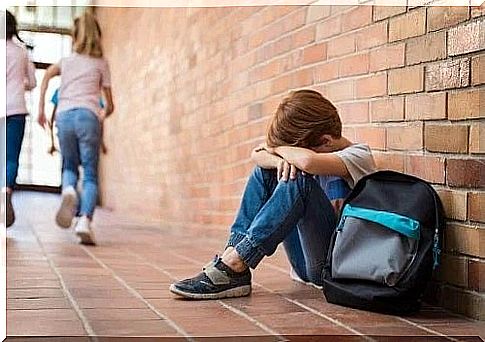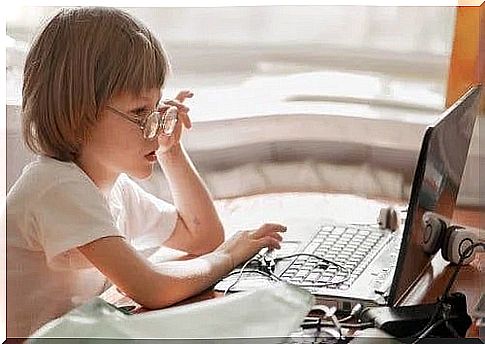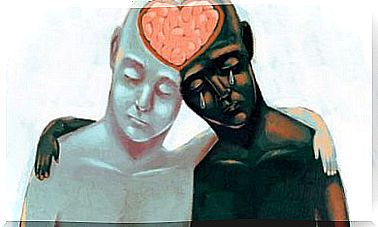Social Anxiety In Children: How To Help Them

Have you ever heard of social anxiety in children? Do you think your child is suffering from this? Does he have problems in his relationships with those around him and is he often afraid or ashamed in everyday situations? Is he worried that he will be harassed or made fun of?
In this article, we present some parameters that allow professionals to assess social anxiety in children. In addition, we offer some useful tips to deal with this situation.
Social anxiety in children
- Depression
Tips to help children with social anxiety

Our goal is to help parents change their child’s behavior if they suffer from social anxiety. The first step is to assess the child’s behavior to find out if he or she is really suffering from social anxiety. In other cases, it may be family problems (for example, in the case of a divorce).
2. Encourages the positive and controlled use of the internet

Internet use is on the rise. Parents face a real challenge to control and limit their children’s access to it. Although its use should always be balanced, some studies show that the internet can be a positive tool in cases of social anxiety.
The anonymity and freedom that the internet offers are a great way for these children to make new friends and to share ideas and concerns. In this context, they may feel very uninhibited, unlike real-life contexts.
However, the internet can be a risk if the little one spends too much time using it without parental supervision. It could also be linked to higher levels of anxiety.
Some studies show a relationship between social anxiety and aggression. Thus, the child could be both the victim and an observer of a situation that affects classmates.
In this case, it is essential to talk to the child’s teacher to find out his position. In addition, some centers have specific programs or mechanisms of action to help children with this type of behavior.
Some of these programs even involve games. In this way, as children play, they become aware of common problems and dare to share some fears because they feel safer and protected from classmates and teachers.
Talking to the child’s teacher can also be very helpful if you have detected problems in his / her school performance. If these problems occur suddenly and without apparent explanation, you should suspect social anxiety.
A child with this problem will not feel comfortable among his colleagues. For this reason, it will be difficult for the child to complete many tasks. For example, speaking in front of other students, teamwork or paused games are things that cause them anxiety.
Now you know more about social anxiety in children and what are its specific characteristics, reflected in their daily behavior. Do not hesitate to ask for the help of teachers, pedagogues or psychologists to deal with anxiety and overcome the child’s problem.









